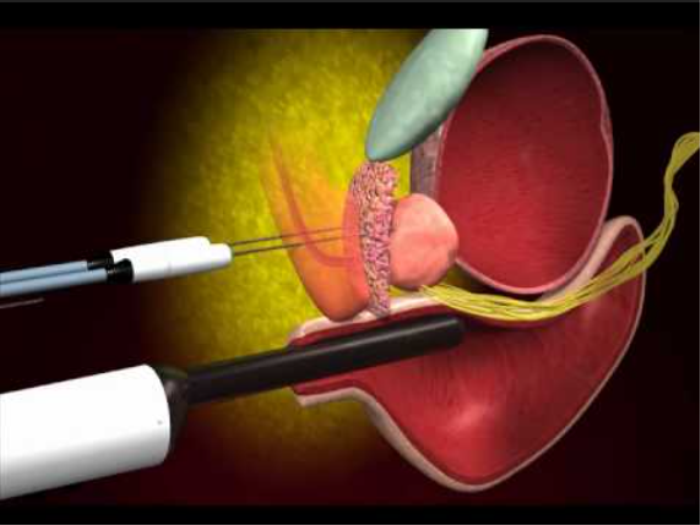Cryotherapy involves using extreme cold to freeze and remove abnormal tissue. It's commonly used by doctors to treat various skin conditions (like warts and skin tags) and some cancers, such as prostate, cervical, and liver cancer. This procedure is also known as cryoablation.
Medical disclaimer: This content is for general awareness and does not replace a doctor’s consultation. For diagnosis or treatment decisions, consult a qualified specialist.
Overview
What is cryotherapy?
Cryotherapy is a treatment where healthcare providers apply extreme cold to freeze and destroy abnormal tissue. They create this intense cold using substances like liquid nitrogen or argon gas.
Cryotherapy can treat a range of skin conditions and some cancers, including prostate and liver cancer. This therapy can be applied both externally (on the skin) and internally (inside the body). It is also referred to as cryoablation.

Why do doctors use cryotherapy?
Cryotherapy is a minimally invasive treatment that removes damaged or diseased tissue from various medical conditions, typically without open surgery. Most people recover quickly and with minimal pain. Your provider might recommend cryotherapy for:
- Bone cancer.
- Cervical, liver, or prostate cancer.
- Precancerous cells in the cervix (lower end of the uterus).
- Precancerous skin conditions and early-stage skin cancers, including squamous cell carcinoma and basal cell carcinoma.
- Retinoblastoma (cancer of the retina in children).
- Skin conditions like warts, skin tags, or dark spots.
Procedure Details
How does cryotherapy work?
During cryotherapy, the healthcare provider applies extreme cold to abnormal tissue, causing the cells to die as they cannot survive the severe cold. Various substances can create the intense cold used in cryotherapy, such as:
- Liquid nitrogen.
- Liquid nitrous oxide.
- Argon gas.
What cryotherapy method will my healthcare provider use?
There are different cryotherapy methods to freeze tissue, depending on the location of the abnormal tissue:
- External: For tissue on your skin, your provider will use a spraying device or a cotton swab to apply the freezing agent.
- Internal: For conditions inside the body, such as precancerous cells or tumors, your provider will use a cryoprobe, an instrument inserted through a small incision in your skin.
External cryotherapy causes frozen skin to blister and peel off, allowing healthy new skin to grow. Internal cryotherapy causes abnormal cells to freeze and die, with the immune system helping clear the tissue from the body.
How should I prepare for cryotherapy?
Most people don't need to do anything special for external cryotherapy on the skin. However, for internal cryotherapy, your healthcare provider will give you specific instructions, which may include:
- Stopping certain medications, such as aspirin or blood thinners, a few days before the procedure.
- Limiting food or drink intake before the procedure.
- Arranging for someone to drive you home after the procedure.
What should I expect during cryotherapy?
For external cryotherapy, your healthcare provider will apply the cold using a spraying device or cotton swab, usually with liquid nitrogen.
For internal cryotherapy, a cryoprobe is inserted through a small incision in your skin, often guided by ultrasound imaging. Depending on the location of the abnormal cells, you may receive local anesthesia (to numb a specific area) or general anesthesia (to put you to sleep during surgery).
What should I expect after cryotherapy?
After external cryotherapy, the treated area will turn red and may blister, with mild pain usually subsiding in about three days. The area will form a scab that typically heals in one to three weeks.
After internal cryotherapy, you may experience mild pain or soreness in the treated area for up to three days. Women who undergo cryotherapy on the cervix may have a watery discharge for a few days to a few weeks.
Risks / Benefits
What are the pros and cons of cryotherapy?
Cryosurgery is a minimally invasive treatment that usually involves less pain, bleeding, and risk of damage to healthy tissue compared to traditional surgery. However, complications can occur, such as:
- Bleeding, cramping, or pain after cryotherapy around the cervix.
- Bone fractures.
- Nerve damage resulting in loss of feeling.
- Swelling, scarring, and skin infection.
Recovery and Outlook
What is the outlook for people who have cryotherapy?
Healthcare providers successfully treat many conditions with cryotherapy. Most skin conditions treated with cryotherapy don't require special care afterward. However, those who have internal cryotherapy may need to limit their activities for a few days. Your provider will advise when you can return to your regular routine, and you may need multiple treatments to remove all abnormal tissue.
When to Call the Doctor
When should I call my doctor?
Contact your healthcare provider if you show signs of an infection after cryotherapy, such as:
- Redness.
- Pus.
- Unexplained fever.
Also, consult your provider if you notice any persistent skin issues after healing from cryotherapy.
Discover the Best Oncologists and Cancer Hospitals in India
When it comes to cancer treatment, finding the right specialist and hospital can make a significant difference in the outcome. In this blog, we have compiled a list of the top oncologists and cancer hospitals across major cities in India, ensuring that you have access to the best care available.
Top Oncologists in Major Cities
For those seeking expert oncologists, we have identified the best specialists in key cities:
Leading Cancer Hospitals
In addition to finding the right specialist, choosing the right hospital is crucial for comprehensive cancer care. Here are the top hospitals in major cities:
Get more indepth information on Cancer treatments and their costs
Conclusion
Finding the right oncologist and hospital is the first step in your cancer treatment journey. Explore the links above to learn more about the top specialists and hospitals in your area.